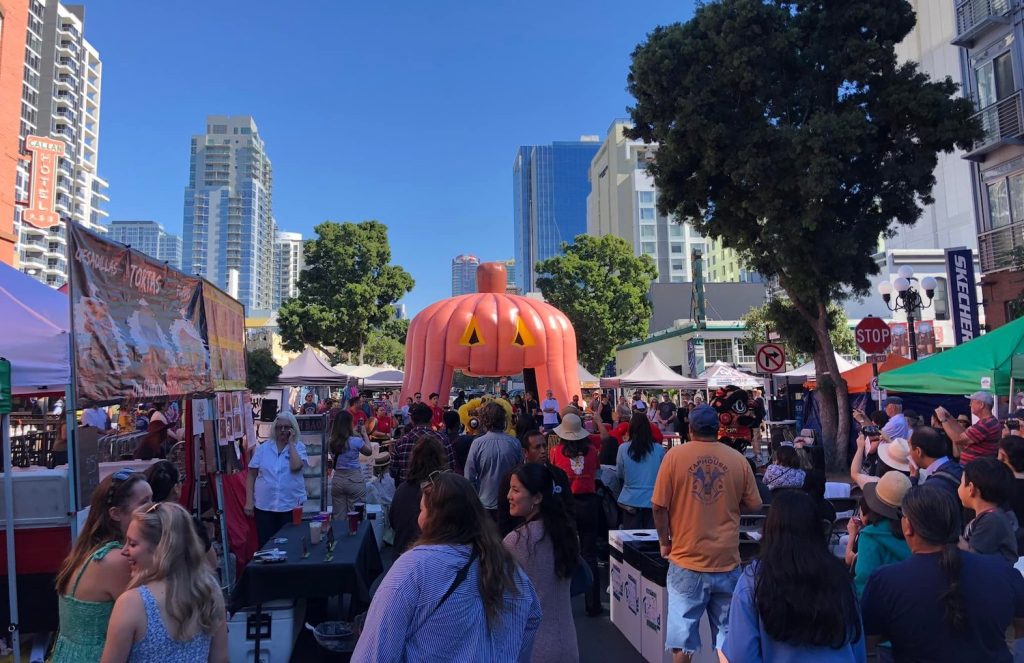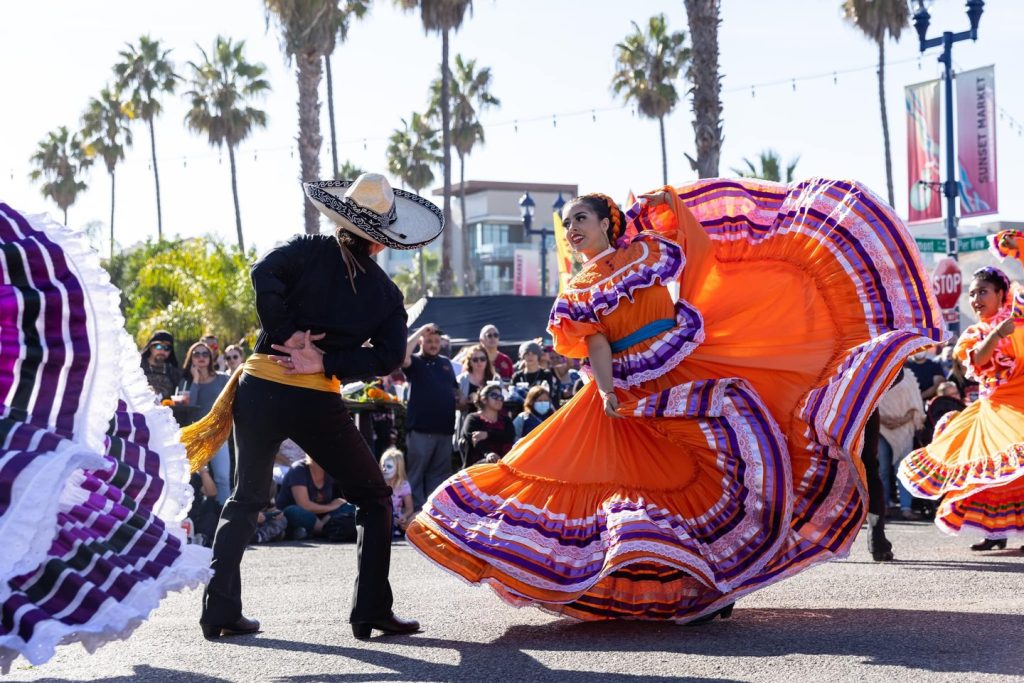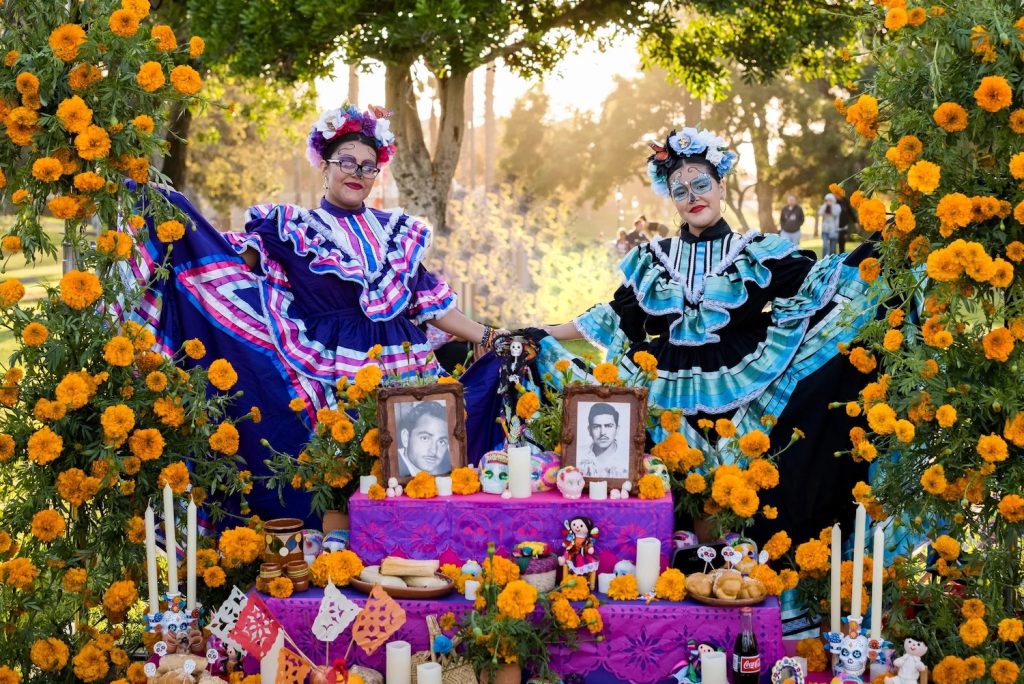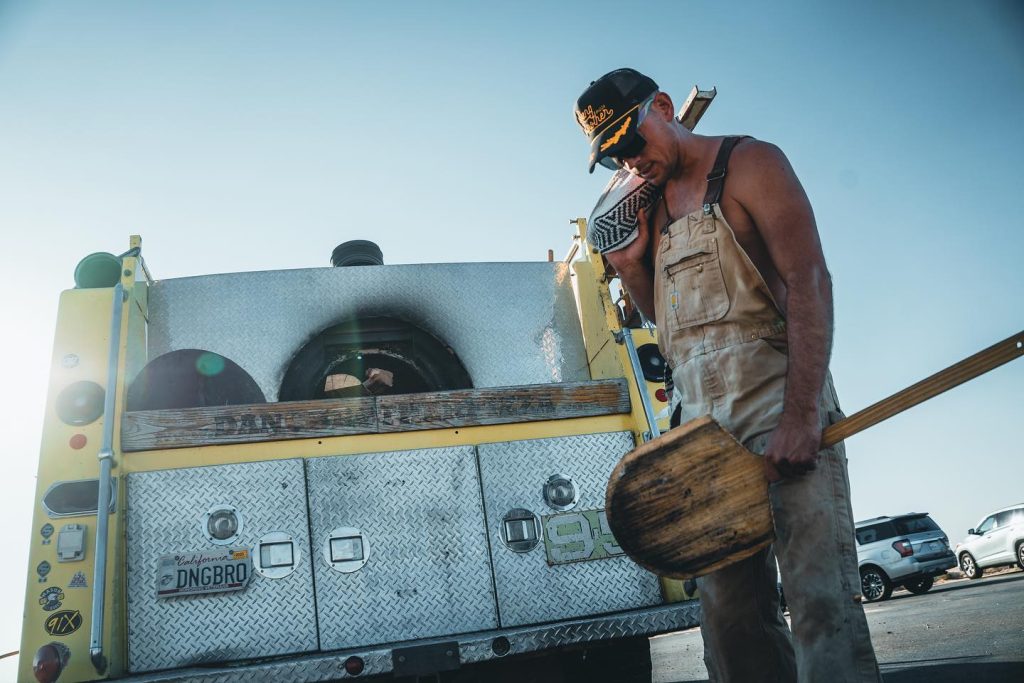At the La Jolla Playhouse, the stage is set with cast members lounging on 1950s-style furniture. Some are knitting or reading, and a redheaded woman with a shotgun sips from a flask. The wall behind them is dressed with taxidermied deer heads, a dartboard, American flags, and a blow-up sex doll. There is no curtain separating the audience from the experience that is about to unfold, no modesty required. Anticipation builds as rock music plays over the speaker, amplified by a rowdy audience searching for their seats.
The Untitled, Unauthorized Hunter S. Thompson Musical begins with a bang as a smoking typewriter crashes to the ground from the ceiling. With the opening act, the show establishes itself as funny, freaky, informal, fiercely independent.
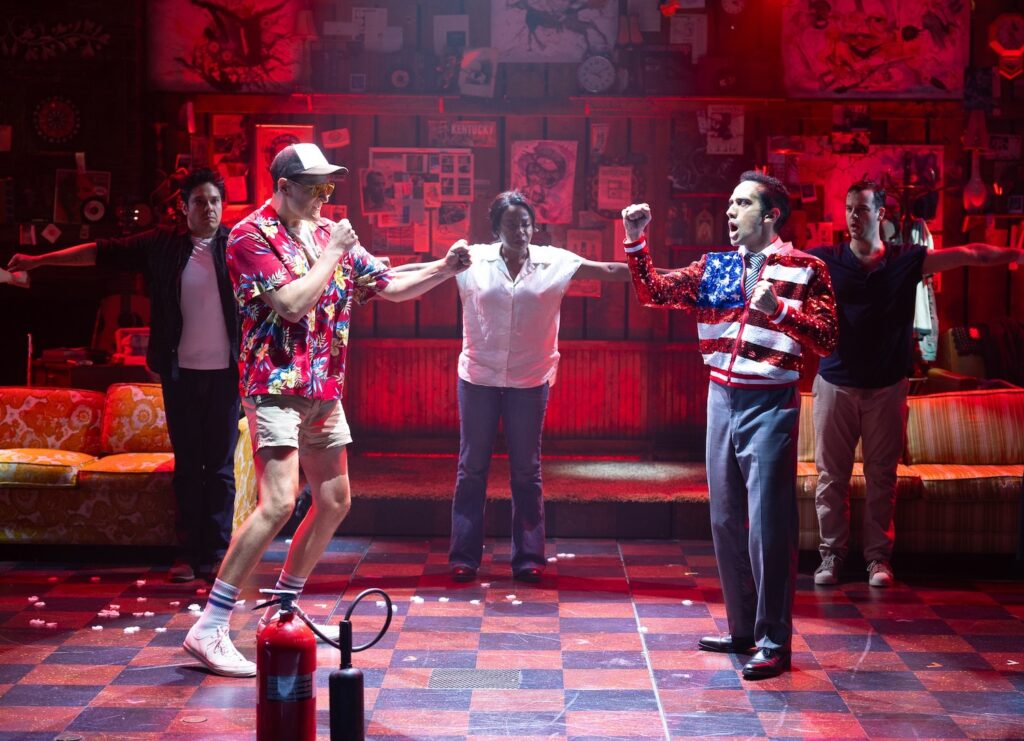
Photo Credit: Rich Soublet II
I suppose I should start where the show does, and explain a bit about who Hunter S. Thompson was—a pioneering American journalist who had a penchant for the wild side, a rebel and an artist. His writing coined the term “gonzo journalism,” a highly personal style characterized by its rawness. It puts the journalist at the center of the story, and, for Thompson, gonzo was a way of life. He is best known for his novels Fear and Loathing in Las Vegas and Hell’s Angels: A Strange and Terrible Saga, but it was his social critique pieces, like 1970’s “The Kentucky Derby is Decadent and Depraved,” that put gonzo on the map.
As a writer, he was bold, forward-thinking, dedicated to the celebration of individuality and critique of the status quo. As a man, he was a recalcitrant drug enthusiast who constantly toed the line between moral and amoral.
Born in 1937 in Louisville, Kentucky, he experienced his coming of age in the 1950s and ’60s when America was embroiled in the fight for civil rights and the debate over community ideals. The Vietnam war and the rise of Richard Nixon made Americans question their views on militarization, authoritarian governments, police violence, and growing corporate interests.
In 2023, we are facing startlingly similar issues. The musical leans into that idea, continuously referencing the cyclical nature of history. Thompson was intensely patriotic, but not in a blinded sense. He cared for a country that was willing to change, to hold itself accountable and to include everyone—especially the outcasts. He viewed journalism as an opportunity to protest and rejected the objective point of view when it gave a voice to those that championed injustice.
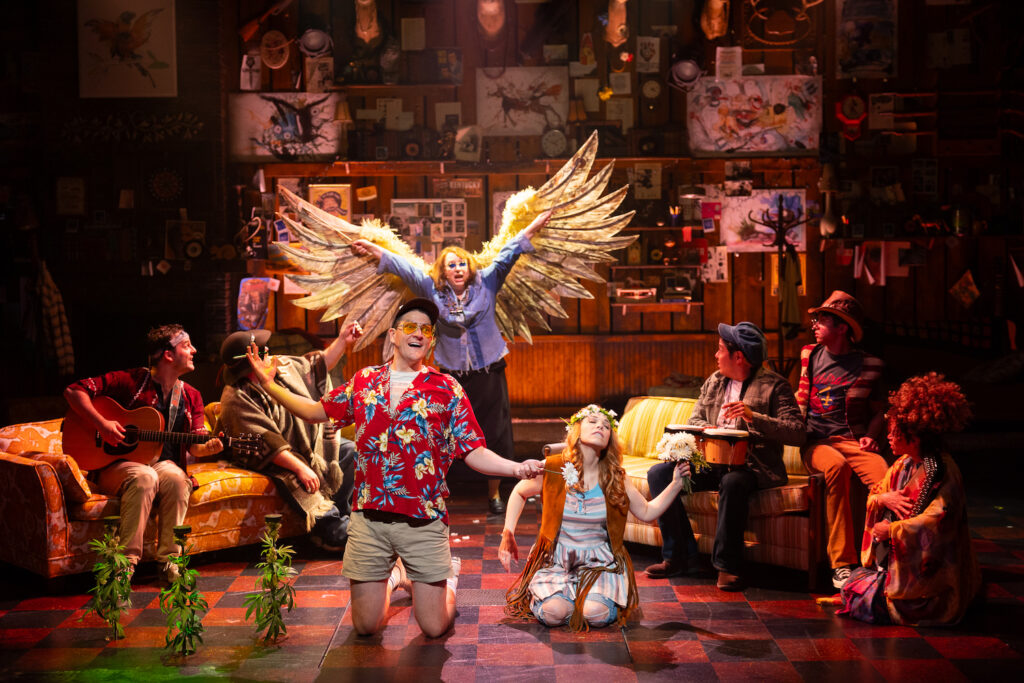
The musical embodies that spirit. Darkness does not hide in the corners or stand behind innuendos in this show—it is front and center, along with comedy, raunchiness, fear, failure, and success. It breaks the fourth wall often and challenges what the audience expects from theater.
Joe Iconis, who wrote the lyrics and music for the show, wanted to showcase “the good and the bad,” he says, adding that he wanted to create something that reflected the “rock-and-roll poetry of Thompson as a character.” The show intentionally shatters musical theater rules in the same way that Thompson broke journalism rules.
Iconis’ writing is poetic and blunt, and his music includes protest songs, rebel yells, and ballads about love and loss, legacy and politics. He brilliantly uses the click and tap of fingers punching letters on a keyboard to create rhythm like a speeding heartbeat, a tornado of words that need to be released. An electric guitar joins the beat, then clapping of hands and stomping of feet, and, finally, the booming voices of the wildly talented cast.
Gabriel Ebert gives a knockout performance as Thompson, capturing the energy of his youth, his struggles to balance life and the party, his intense yearning for greatness, and, finally, Thompson in his final stage, grappling with what his legacy is. Marcy Harriell portrays Hunter’s wife Sandy and wows as the woman behind the man, shedding light on her unseen labor and devotion and the abuse she faced throughout her marriage. Together with the rest of the cast, they grapple with the line where passion meets destruction.
Ultimately, The Untitled is about more than journalism. It is about the villains we create for ourselves and out of ourselves. It asks viewers to question the meaning of greatness, success, and legacy.
As a whole, the show is an emotional passing of the torch to the future activists of the world, a celebration of and a primal call to the freaks and misfits. It is an opportunity to reflect not only on the society around us, but what role we want to play in it.
The Untitled, Unauthorized Hunter S. Thompson Musical runs through October 8 at the La Jolla Playhouse.
This post contains affiliate links to products and services. We may receive compensation when you click on links.





